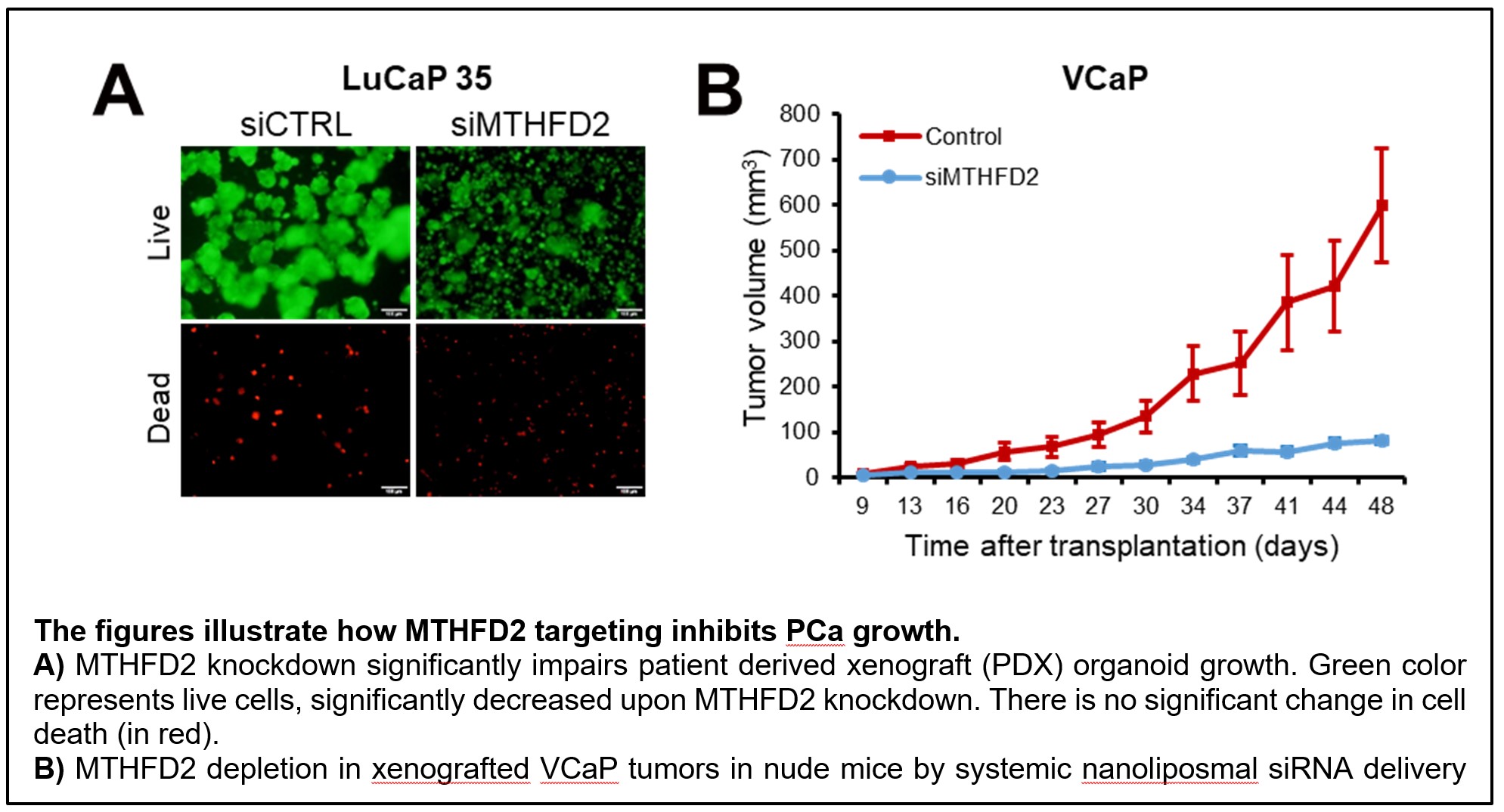Scientists at University of Oslo have identified a mitochondrial enzyme, MTHFD2, as a potential therapeutic target in prostate cancer and are developing a method to inhibit the target with siRNA technology. Pre-clinical studies have shown that therapeutic silencing of MTHFD2 with nanoliposomal siRNA profoundly inhibited tumour growth in prostate cancer mouse models.
BUSINESS OPPORTUNITY
Inven2 seeks collaboration with industrial partners and licensors who can support the continued development of a MTHFD2 siRNA therapeutic for prostate cancer. The technology is in pre-clinical phase and in vivo testing is ongoing to assess the effect of various MTHFD2-specific siRNAs on prostate cancer tumour growth. Due to the central role of MTHFD2 in many tissues and tumours, the technology can be relevant for multiple cancer types in addition to prostate cancer.
TECHNOLOGY
Our team has investigated the role of the mitochondrial enzyme MTHFD2 (methylenetetrahydrofolate dehydrogenase 2) in prostate cancer. They have demonstrated that the mitochondrial, but not cytoplasmic, one-carbon cycle has a key role in prostate cancer cell growth and survival, and it may serve as a therapeutic target. Furthermore, a prototype siRNA formulation targeting MTHFD2 has been developed and tested. Testing revealed that nanoliposomal systemic siRNA delivery of MTHFD2 in nude mice, harbouring two independent human xenograft models, resulted in strong inhibition of tumour growth (see figures below).

PUBLICATION
Pällmann, N., Deng, K., Livgård, M., Tesikova, M., Jin, Y., Frengen, N. S., … & Saatcioglu, F., et al. Stress-Mediated Reprogramming of Prostate Cancer One-Carbon Cycle Drives Disease Progression. Cancer Research, 2021, 81.15: 4066-4078.
INTELLECTUAL PROPERTY
A patent application has been filed


